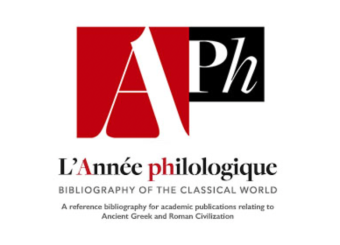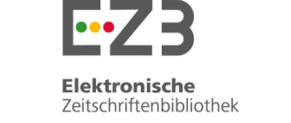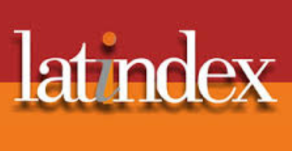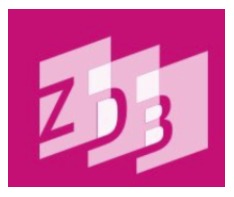EL TEMOR Y LA CONFIANZA DE LOS CIUDADANOS: ARISTÓTELES, RETÓRICA II, Y DEMÓSTENES, CONTRA MIDIAS
DOI:
https://doi.org/10.53382/issn.0719-9902.46Palabras clave:
Aristóteles, Demóstenes, retórica, emociones, democraciaResumen
El artículo muestra la complementación de la tipología aristótelica del temor y la confianza de Retórica II que provee Contra Midias a través de un valioso cuadro de la dinámica de estas emociones en la Atenas democrática del siglo IV. En primer lugar, examino brevemente el análisis del temor y la confianza en la obra de Aristóteles. Seguidamente, resumo el contenido y la estructura de Contra Midias y expongo por qué hacen de este discurso un recurso eficaz para abordar la temática del temor y la confianza de los ciudadanos de la polis democrática. A continuación, analizo cómo Demóstenes presenta su demanda como una contienda entre la polis democrática y Midias y describe la confianza y el temor y las correspondientes actitudes elogiables o reprobables de los diversos actores que aparecen en el discurso. Finalmente, muestro que la estrategia argumentativa de Demóstenes está orientada a suscitar la ira de los jueces y la condena de Midias haciéndoles ver que ricos ὑβρισταί como Midias carecen de temor, vergüenza y compasión, ponen en riesgo la τιμή de los ciudadanos y amenazan un patrimonio que estos comparten: la confianza y la seguridad (ἄδεια, ἀσφάλεια, θάρρος) provistas por las leyes y la justicia.
Referencias
Adkins, Arthur 1996: «Homeric Ethics», in Morris, Ian and Powell, Barry (eds.), A new companion to Homer, Leiden, pp. 694-714.
Allen, Danielle 2004: «Angry bees, wasps, and jurors: the symbolic politics of anger in Athens», in Braund, Susana and Most, Glenn (eds.), Ancient Anger Perspectives from Homer to Galen, Cambridge, pp. 76-98.
Balot, Ryan 2014: Courage in the Democratic Polis: Ideology and Critique in Classical Athens, Oxford.
Bishop, Caroline 2019: Cicero, Greek learning, and the making of a Roman classic, Oxford.
Cairns, David 2016: «Metaphors for Hope in Archaic and Classical Greek Poetry», in Caston, Ruth and Kaster, Robert (eds), Hope, Joy, and Affection in the Classical World, New York, pp. 13-44.
Cairns, David 2020: «Aristotle on Hybris and Injustice», in Veillard, Chistelle et Renaut, Olivier (eds.), Les philosophes face au vice, de Socrate à Augustin, Leiden, pp. 147-174.
Cohen, David 1991: «Demosthenes’ Against Meidias and Athenian Litigation», in Gagarin, Michael (ed.), Symposion 1990. Vorträge zur griechischen und hellenistischen Rechtsgeschichte (Pacific Grove, California, 24-26. September 1990), Köln, pp. 155-164.
Cooper, Craig 2001: «Philosophers, politics, academics: Demosthenes’ rhetorical reputation in antiquity», en Worthington, Ian (ed.), Demosthenes: Statesman and Orator, London, pp. 222-245.
Cooper, Craig 2009: «(Re)making Demosthenes: Demochares and Demetrius of Phalerum on Demosthenes», in Wheatley, Patrick and Hannah, Robert (eds.), Alexander and his Successors Essays from the Antipodes, Claremont, pp. 310-322.
Curado, Ana 2016: «Emotion, life history and law: Demosthenes and the architecture of the speech Against Meidias», en Leão, Delfim und Thur, Gerhard (hrsgg.), Symposion 2015. Vorträge zur griechischen und hellenistischen Rechtsgeschichte (Coimbra, 1.-4. September 2015), Coimbra, pp. 303-318.
Canfora, Luciano 2019: «Afterlife (Antiquity and Bizantyne Era)», in Martin, Gunther (ed.), The Oxford Handbook of Demosthenes, Oxford, pp. 431-452.
Ciriaci, Antonio 2013, L’Anonimo di Giamblico. Saggio critico e analisi dei frammenti, Napoli.
Edwards, Mike and Spatharas, Dimos (eds.) 2020: Forensic Narratives in Athenian Courts, London.
Gagarin, Michael and Cohen, David (eds.) 2005: The Cambridge Companion to Ancient Greek Law, Cambridge.
Gagarin, Michael 2016: «Demosthenes Against Meidias: Response to Ana Lúcia Curado», en Leão, Delfim und Thur, Gerhard (eds.), Symposion 2015. Vorträge zur griechischen und hellenistischen Rechtsgeschichte (Coimbra, 1.-4. September 2015), Coimbra, pp. 319-324.
Grimaldi, William 1988: Aristotle: Rhetoric II: A Commentary, New York.
Halperin, David 1990: One hundred years of homosexuality and other essays on Greek love, London.
Harris, Edward 2008: Demosthenes, Speeches 20-22, Austin.
Harris, Edward 2019: «Hybris nelle corti giudiziarie ateniesi. Il profilo legale dell’accusa nella Contro Midia di Demostene», Rivista di diritto ellenico 9, pp. 143-170.
Heidegger, Martin 2002: Grundbegriffe der aristotelischen Philosophie, Frankfurt am Main.
Hendren, Gorge 2015: «Meidias Tyrannos: Meidias’ Tyrannical Attributes in Demosthenes 21», Illinois Classical Studies 40, 1, pp. 21-43.
Hirzel, Rudolph 1914: Die Person: Begriff und Name derselben im Altertum, München.
Humbert, Jean et Gernet, Louis 1959: Démosthène Plaidoyers politiques: Tome II: Contre Midias. Contre Aristocrate, Paris.
Jaeger, Werner 1963: Demosthenes: Der Staatsmann und sein Werden, Berlin.
Konstan, David 2006: The Emotions of the Ancient Greeks: Studies in Aristotle and Classical Literature, Toronto.
Lanni, Adriaan 2016: Law and Order in Ancient Athens, Cambridge.
Leganés, María y Hernández, Felipe 2008: Demosthenis In Midiam, León.
Lopez-Eire, Antonio 1980: Demóstenes, Discursos politicos I, Madrid.
MacDowell, Douglas 1990: Demosthenes Against Meidias (Oratio 21), Oxford.
Magoja, Eduardo E. 2021: La obediencia a la ley como coraza del pueblo: la defensa de las instituciones jurídicas en el texto del Anónimo de Jámblico, Madrid.
McElwee, Larry 1975: ADEIA: Amnesty and Immunity at Athens from Solon to Demosthenes, New York.
Martin, Gunther 2009: Divine Talk: Religious Argumentation in Demosthenes, Oxford.
Meerwaldt, J. 1926: «De Aristotelis erga Demosthenem animo», Mnemosyne 54, 2/3, pp. 348-369.
Ober, Josiah 1991: Mass and Elite in Democratic Athens: Rhetoric, Ideology, and the Power of the People, Princeton.
Ober, Josiah 1994: «Oratory and Power in Democratic Athens: Demosthenes 21, Against Meidias», in Worthington, Ian (ed.): Persuasion: Greek Rhetoric in Action, London, pp. 85-108.
Osborne, Robin 1985: «Law in Action in Classical Athens», The Journal of Hellenic Studies 105, pp. 40-58.
Papaioannou, Sophia and Serafim, Andreas (eds.) 2017: The Theatre of Justice Aspects of Performance in Greco-Roman Oratory and Rhetoric, Leiden.
Pauling, Daniel, 2018: Ἀσφάλεια: Die Entwicklung der Sicherheitsvorstellungen und der Diskurs über Sicherheit im archaischen und klassischen Griechenland (Diss.), Dresden.
Piepenbrink, Karen 2020: Die Rhetorik des Aristoteles und ihr Verhältnis zum historischen Kontext, Stuttgart.
Poddighe, Elisabetta 2021: «Compensazione del danno (timoria) e giustizia come reciprocità nella demostenica Contro Midia, sul pugno», Erga-Logoi. Rivista di storia, letteratura, diritto e culture dell'antichità 9, pp. 23-67.
Roisman, Joseph 2005: «The Rhetoric of Manhood Masculinity in the Attic Orators», in Rosen, Ralph and Sluiter, Ineke (eds.): Andreia studies in manliness and courage in classical antiquity, Leiden, pp. 127-143.
Rowe, Galen 1993: «The Many Facets of Hybris in Demosthenes’ Against Meidias», The American Journal of Philology 114 (3), pp. 397-406.
Rowe, Galen 1994: «The Charge against Meidias», Hermes 122, pp. 55-63.
Sancho, Laura 2011: «Riqueza, impiedad y ὕβρις en el Contra Midias de Demóstenes», Emerita 79, pp. 31-54.
Serafim, Andreas 2017: Attic oratory and performance, New York.
Spatharas, Dimos 2017: «The Mind’s Theatre: Envy, Hybris and Enargeia in Demosthenes’ Against Meidias», in Papaioannou, Sophia and Serafim, Andreas (eds.), The Theatre of Justice Aspects of Performance in Greco-Roman Oratory and Rhetoric, Leiden, pp. 200-222.
Spatharas, Dimos 2019: Emotions, persuasion, and public discourse in classical Athens, Berlin.
Tiersch, Claudia 2018: «Selbstbeschreibungen der Demokratie bei attischen Rednern», in Walter, Uwe und Jordović, Ivan (eds,), Feindbild und Vorbild: Die athenische Demokratie und ihre intellektuellen Gegner, Berlin, pp. 45-72.
Trevett, Jeremy 1996: «Aristotle's Knowledge of Athenian oratory», The Classical Quarterly 46, pp. 371-379.
Trevett, Jeremy 1996a: «Did Demosthenes Publish His Deliberative Speeches?», Hermes 124, 4, pp. 425-441.
Trevett, Jeremy 2019: «Authenticity, Composition, Publication», in Martin, Gunther (ed.), The Oxford Handbook of Demosthenes, Oxford, pp. 419-431.
Westwood, Guy 2019: «Aristotle’s Demosthenes, the Killing of Nicanor, and the Composition of the Rhetoric», Classical Philology 114, pp. 645-656.
Wilson, Peter 1992: «Demosthenes 21 (Against Meidias): Democratic Abuse», Proceedings of the Cambridge Philological Society (Second Series) 37, pp. 164-195.
Wilson, Peter 2000: The Athenian Institution of the Khoregia, Cambridge.
Wohl, Victoria 2010: Law’s Cosmos: Juridical Discourse in Athenian Forensic Oratory, Cambridge.
Yatromanolaki, Ioanna 1984: «The Chronology of Aristotle’s Rhetoric and its Relation to the Corpus Demosthenicum», Ariadne 2, pp. 1-20.
Descargas
Publicado
Número
Sección
Licencia
Derechos de autor 2023 Grecorromana. Revista Chilena de Estudios Clásicos

Esta obra está bajo una licencia internacional Creative Commons Atribución-NoComercial-SinDerivadas 4.0.













